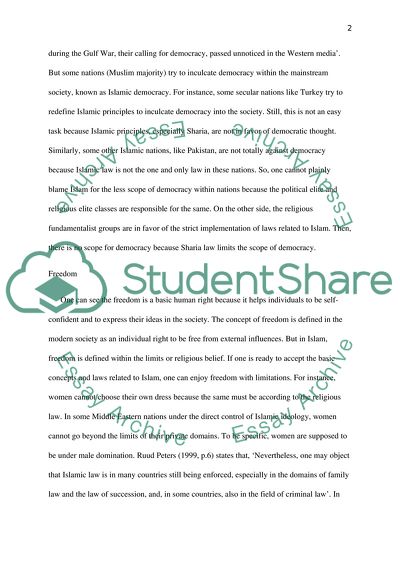Cite this document
(“Islamic Law and the Modern World Essay Example | Topics and Well Written Essays - 2000 words”, n.d.)
Islamic Law and the Modern World Essay Example | Topics and Well Written Essays - 2000 words. Retrieved from https://studentshare.org/religion-and-theology/1662848-islamic-law-and-the-modern-world
Islamic Law and the Modern World Essay Example | Topics and Well Written Essays - 2000 words. Retrieved from https://studentshare.org/religion-and-theology/1662848-islamic-law-and-the-modern-world
(Islamic Law and the Modern World Essay Example | Topics and Well Written Essays - 2000 Words)
Islamic Law and the Modern World Essay Example | Topics and Well Written Essays - 2000 Words. https://studentshare.org/religion-and-theology/1662848-islamic-law-and-the-modern-world.
Islamic Law and the Modern World Essay Example | Topics and Well Written Essays - 2000 Words. https://studentshare.org/religion-and-theology/1662848-islamic-law-and-the-modern-world.
“Islamic Law and the Modern World Essay Example | Topics and Well Written Essays - 2000 Words”, n.d. https://studentshare.org/religion-and-theology/1662848-islamic-law-and-the-modern-world.


